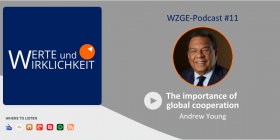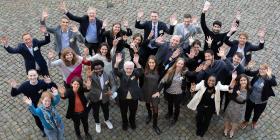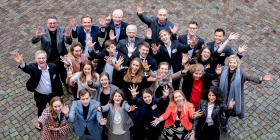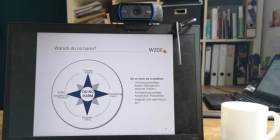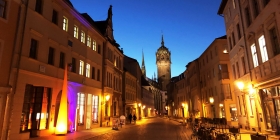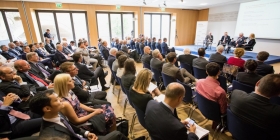The Wittenberg Center
The WCGE is a non-profit think tank. We offer ethical orientations to current and future leaders to equip them with systematic analysis and decision-making schemes that can be applied in everyday work situations. We are an independent institution and take a global outlook. Our work is based on a long-standing tradition of academic research and the specific formats we offer include seminars, dialogue processes and research as well as teaching projects. We cooperate with politics, industry, science, civil society and the church.
Who we are
The WCGE is a non-profit Think Tank. We offer training in ethics to current and future leaders to equip them with systematic schemes of analysis and decision-making which can be applied in everyday work situations. We, as an institution, are independent and take a global outlook. Our training is based on a long-standing tradition of academic research and the specific formats we offer include seminars, dialogue processes and research and teaching projects in cooperation with higher education institutions. We are supported by partners from all spheres of societal life: politics, business, civil society and the church.
What motivates us
In times of globalisation and digitalisation, actively applying ethical analysis is imperative. When developments occur hastily and uncertainty grows inexorably, the limits to the applicability of rules, standards and prozesses which have been effective in the past become evident. In these moments, principles, dispositions and values, which stand the test of time and change, are vital points of orientation. Development and progress depend on cooperation. Cooperation, in turn, depends on points of orientation which the stakeholders involved in the cooperative venture share.
How we work
We identify conflicts which occur in the course of competition, due to scarcity of resources or as a result of cultural differences. Thereby, we build bridges between the responsibility of the individual (leadership ethics), the responsibility of collective actors (ethics in corporations and organisations) and the moral value of political and economic systems (institutional ethics).
What we want to achieve
Our goal is to enable ethics to be lived and applied in everyday situations: in decision processes, leadership structures, programmes and strategies. To this end, we want to reach decision makers in all areas of society. We want to reach the people who influence progress and development and who are role models for others in society and hence, can take influence on thought process and actions in diverse spheres of society.


